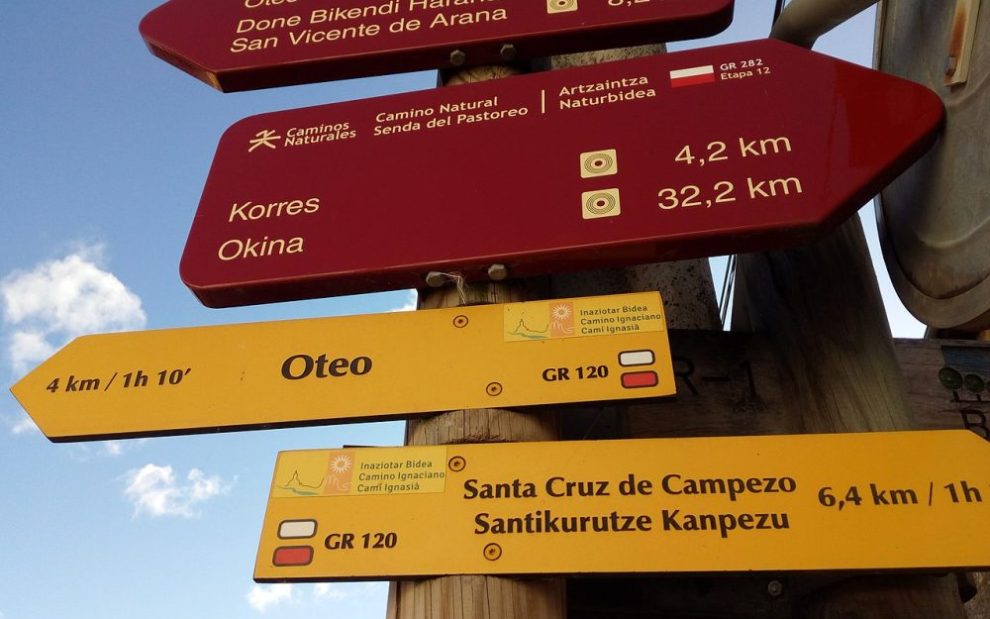It’s easy to mistake pilgrimage for spiritual tourism.
“So, you’re traveling throughout Spain, visiting cool places, and eating good food? And that’s a religious thing?”
Pilgrimage can easily drift into tourism if we’re not intentional. Standing in one church after another doesn’t necessarily mean you’re achieving anything spiritually significant. Pilgrimage takes work—and not just booking hotels and researching restaurants ahead of time. It’s about cultivating the disposition of a seeker, someone who is searching for God’s Holy Spirit at work.
Last March I went on an Ignatian pilgrimage, a journey following in the footsteps of a medieval soldier-turned-saint. St. Ignatius of Loyola, born in the Basque region of Spain at the end of the 15th century, had a profound experience of God while recovering from a battlefield injury. That period of convalescence changed the trajectory of his life, leading him to put aside his own worldly aspirations in favor of the pursuit of God’s dream for the world.
One of Ignatius’ most profound insights into the spiritual life was this: God is in all things, everywhere, at all times. And God delights in us precisely where we are. That means that pilgrimage can happen in distant lands and right here at home. The key is our disposition: Are we open and available to being surprised by God?
Every pilgrimage—every pilgrim—is different. But common themes help us avail ourselves of God at work in our lives.
1. It’s OK to rest.
The cannonball that shattered Ignatius’ leg at the Battle of Pamplona in 1521 necessarily changed his plans. Gone were his dreams of courtly success. During those long months of convalescence, Ignatius read books on the life of Christ and the saints and found himself increasingly drawn to a life of service that transcended earthly courts and kings.
God spoke in this quiet, seemingly useless time. The loud, messy trauma of the cannonball was only the precursor to this hidden period of spiritual discovery.
That’s what I was thinking about as I stood in Ignatius’ childhood room in Loyola: God spoke in quiet whispers and gentle prodding in this little room in a remote corner of Spain to a man who would go on to profoundly impact the church and the world. There were very few witnesses and no great show of miracles, just quiet prayer, a resting in God.
We can do that anywhere.
2. Look in the bushes.
After recovering from his wounds and committing himself to God, Ignatius journeyed from Loyola to pray before Our Lady of Aranzazu.
The story of Aranzazu is as simple as it is odd: A young shepherd followed the sound of a bell and discovered an ancient statue depicting Mary with the infant Jesus on her lap. The statue became the destination of many pilgrims, and the prayers offered to God there were credited with bringing a period of peace to the region.
What does this say about where instruments of God are to be found? A simple shepherd discovers a simple statue in a bush on a regular, mundane day. That discovery inspired legions of pilgrims to journey to bear witness to this miracle, to see what experience of God they might have in recognizing the Spirit at work in peculiar, ordinary places.
Where is God hiding in the ordinary places of our daily lives?
3. Cut your fingernails.
After formally laying down his sword and committing himself to God’s work at the monastery of Montserrat, Ignatius spent many months ministering to the people of a nearby town, Manresa. He spent time in a nearby cave, encountering God in prayer as well as in self-doubt and depression. He wondered if he could ever be good enough to serve God as God desired. As a result of this self-flagellation, he failed to care for himself: He didn’t eat enough, cut his nails, or comb his hair.
It took him months to realize that his view of himself as unworthy couldn’t have been further from how God actually viewed him.
A Jesuit priest who accompanied our pilgrimage said it best: “The best thing Ignatius did for God in this cave was cut his fingernails.” In that small act of self-care, Ignatius recognized and accepted the love God had been showering him with all along.
How can we love ourselves as God loves us?
4. Skip cool stuff.
Ignatius’ pilgrimage brought him to Rome to win the pope’s approval for his fledgling religious order, the Society of Jesus. Along the way, he stopped in La Storta, an unextraordinary place where travelers refilled their water.
There, Ignatius had a vision in which God the Father encouraged him to continue his pilgrimage with Jesus. Ignatius knew he was on the right path.
La Storta, in present-day Rome, is very out of the way. To visit, you pass ancient ruins, beautiful monuments, historical churches, and tempting restaurants. And then you still have 20 minutes.
The place itself—the little chapel built to commemorate Ignatius’ experience—is unimpressive, like an oversized pink shed.
Yet our group of pilgrims gathered in that place to pray, celebrate Mass, and offer intentions for one another and the world. That pink shed transformed into sacred ground that not even the most towering of cathedrals could rival. We stood and prayed in a place where saints and sinners had come before and encountered God.
What makes a place sacred isn’t the stuff—it’s the knowing that God continues to work in that place. And God, found in all things, makes all places holy: our kitchens, our offices, our homes.
5. Your story is your story.
A pilgrimage, by its very nature, is paradoxical: a solo spiritual journey undertaken in the company of others. We may literally travel in a group to a far-off land, or we may bump into fellow travelers on our daily commute.
But the fruits of a pilgrimage are uniquely yours. God speaks to you. There is no better or best pilgrimage. There is simply your pilgrimage—and what you take from it.
Ultimately, that’s how the stories of our lives unfold. There’s no sense in comparing my pilgrimage to yours or anyone else’s. Why then are we tempted to entertain such comparisons in our everyday lives?
If we cultivate that disposition of wonder, of seeking, of radical availability to a God who delights in us, then we will necessarily be surprised by how God works in and relates to our life stories.
“Are you envious because I am generous?” (Matt. 20:15), God asks. Or are we content to receive God’s good gifts for what they are—and rejoice in the giftedness of others?
Ignatius recognized that God truly is at work in all things, all people, all places—whether he was traveling the Spanish countryside or writing letters from his tiny room in Rome.
Sometimes, as a pilgrim people, we go far from our homes to discover this truth. Other times, we need only look out our window.
Image: Wikimedia Commons/Winfried Weithofer (CC BY-SA 4.0)














Add comment